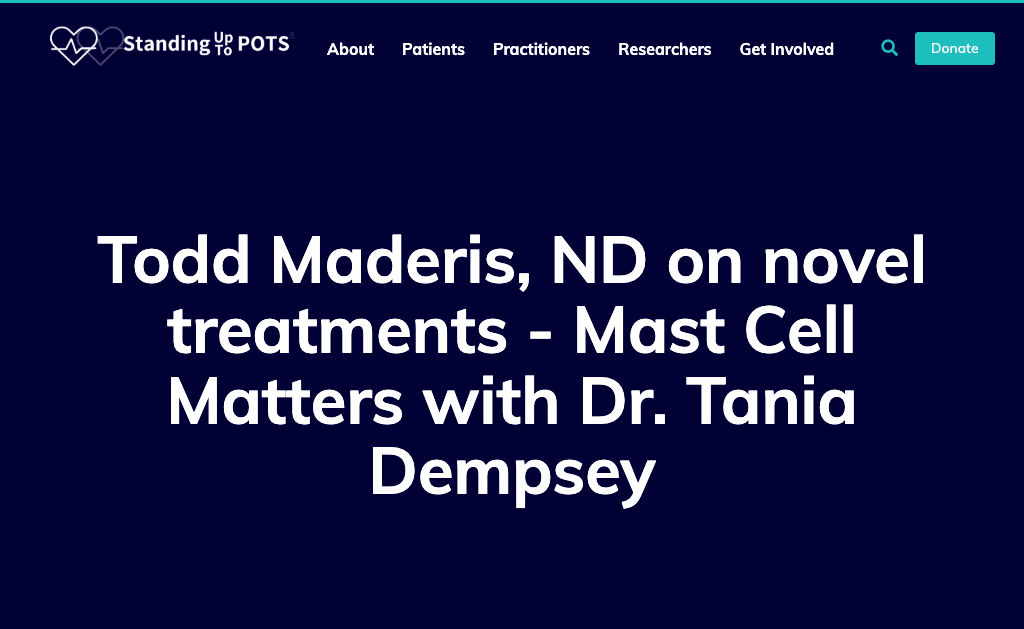Todd Maderis, ND on novel treatments - Mast Cell Matters with Dr. Tania Dempsey
Drs. Tania Dempsey and Todd Maderis discuss MCAS within complex chronic illness, emphasizing multi-hit models (genetic susceptibility plus environmental/infectious triggers) and the need to modulate—not overstimulate—the immune system. They highlight newer genomic profiling (e.g., Intelex DNA) to identify variants that bias toward IgE responses (IL-4/IL-13) and neuroimmune risks (e.g., SHANK3), and connect chemical intolerance/TILT and maternal exposures to later neurodevelopmental issues. They outline “membrane medicine” using phosphatidylcholine (PK protocol) to repair cell and mitochondrial membranes, enhance detoxification, and help resolve the cell danger response; Dr. Dempsey also tracks cellular health via bioimpedance phase angle and notes unexpected improvements in some patients on GLP-1s. For persistent infections, they report strong clinical results using SOT (now Q-REstrain) for Lyme co-infections and herpesviruses to reduce pathogen load and reliance on long antibiotics. A major focus is hypercoagulability: excess fibrin and impaired fibrinolysis (PAI-1, Factor V Leiden, prothrombin mutations) can drive fatigue, brain fog, cold extremities, POTS/dysautonomia, and biofilms that shelter microbes. They recommend targeted testing (LabCorp coagulation panel code 505443 and preferred ranges), and tailored therapies such as lumbrokinase (Boluoke) for fibrinolysis and, when indicated, anticoagulants (e.g., apixaban/Eliquis; heparin/sulodexide) alongside inflammation and mast cell control, given a bidirectional loop between mast cells and coagulation. They stress broad, individualized assessment (including toxins/metals) and offer hope: with persistent, layered care that addresses terrain, infections, coagulation, and membrane health, most patients can improve.
